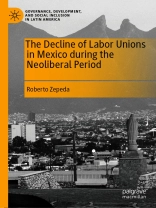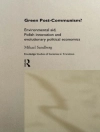This book examines the most significant factors accounting for the decline of union density during the neoliberal period, focusing on the case of Mexico. Union density, which reflects the representation of labor unions in the employed labor force, is one of the main indicators of union strength. The relation of organized labor with the state and the political system are also considered. The analysis is framed within a structure concentrated on cyclical, structural and political-institutional factors linked to labor union performance. Over the last decades, the transformations brought about by neoliberalism and democratization reshaped many features of the domestic political and economic model in Mexico. Therefore, an examination of these developments regarding the repercussions of the factors linked to union density decline is crucial.
Cuprins
Chapter 1. Introduction.- Chapter 2. The decline of labor unions
.- Chapter 3: Neoliberalism and organized labor.
- Chapter 4. The Rise and Decline of Labor Unions in Mexico: Political and Institutional Factors.
- Chapter 5: The restructuring of the corporatist pact.- Chapter 6: The economic performance and labor markets.- Chapter 7: Union Density Trends in Mexico.- Chapter 8.
Conclusions.
Despre autor
Roberto Zepeda is a full-time researcher at the National Autonomous University of Mexico (UNAM). He prevoiusly was an associate professor in the Department of Politics and the Department of Hispanic Studies at the University of Sheffield, UK, and a professor in international relations at different universities in Mexico. His research focuses on neoliberalism, labor unions, migration, and security as well as the analysis of subnational dynamics in North America.












